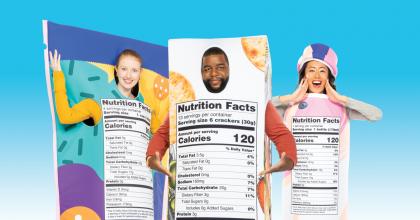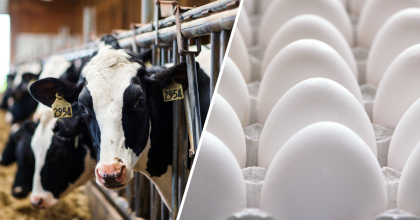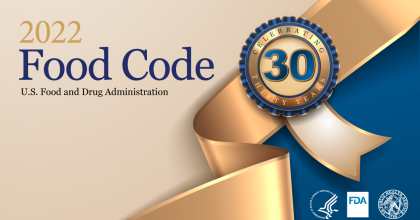Microbiological Food Safety
Advance strategies to prevent pathogen-related foodborne illness in close collaboration with other regulatory agencies, states, industry, and other stakeholders
Advance strategies to prevent pathogen-related foodborne illness in close collaboration with other regulatory agencies, states, industry, and other stakeholders
Focus on food chemical safety and dietary supplement policy and coordinates on regulatory and scientific issues for foods made through innovative technologies
Help reduce the burden of diet-related chronic diseases, improve health equity, and ensure the nutritional adequacy and safety of infant formula

Proposed rule on a front-of-package nutrition labeling that could help quickly identify how foods can be part of a healthy diet

Educational materials for consumers and educators on the Nutrition Facts label

Learn about the updated "healthy" claim and how it can help consumers identify healthier food choices at a quick glance.

Better understand genetically engineered foods, commonly called GMOs or genetically modified organisms

Updated advice about eating fish that incorporates the recommendations of the Dietary Guidelines for Americans

Latest information regarding safe preparation of infant formula and answers to questions regarding the safety and nutritional quality of formula

Ensuring the continued effectiveness of the federal-state milk safety system

Protect yourself, your family, and your pets from foodborne illnesses using these steps to preserve your food/water during storms

Commemorating 30-years of the FDA Food Code - a model for best practices to ensure the safe handling of food in a retail setting
U.S. Food and Drug Administration
Human Foods Program
Food and Cosmetic Information Center
5001 Campus Drive, HFS-009
College Park, MD 20740-3835
1-888-SAFEFOOD (1-888-723-3366)
10:00 AM - 4:00 PM EST
Closed Thursdays 12:30 PM – 1:30 PM EST